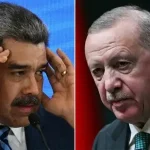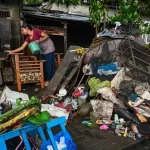ISLAMABAD: The government has made no commitments with the International Monetary Fund (IMF) to increase gas tariff or to recover power sector’s circular debt from consumers through electricity bills, Finance Minister Ishaq Dar said on Saturday.
“There is no truth in reports that we have made any such promise,” he told a press conference, referring to statements from political parties that the government, during recent talks with the IMF in Dubai, had promised to increase gas tariff and recover circular debt from consumers.
“My economic team is witness to all negotiations in Dubai,” said Dar, flanked by Special Assistant to Prime Minister on Revenue Haroon Akhtar, Federal Board of Revenue (FBR) Chairman Nisar Mohammad Khan and representatives of traders.
On the next National Finance Commission (NFC) award, the minister hinted that the 7th NFC may continue for another year as well. However, the name of private member of Punjab was sent to the president for approval, he said.
Answering a question, he said the centre was not going to increase the ratio of funds to the government of Khyber Pakhtunkhwa for war on terror from existing one per cent to 5pc under the next NFC award.
PIA lay-offs
On the privatisation of Pakistan International Airlines (PIA), the minister said that his government increased the fleet from 16 to 38 and improved the airline’s flight operations to 80pc.
He also dispelled any doubts that 8,000 employees of the company would be laid off, adding: “We want to improve PIA’s performance through better management.”
The minister, avoiding questions about privatisation of power companies, said the government was working to reduce losses of state enterprises.
But he was specific on the performance of Pakistan Steel Mills (PSM). “The mill had assured the government to increase production capacity to 74pc by December 2014, but failed.”
The products that PSM produced at a cost of Rs40,000 a tonne were available at Rs10,000 in the open market, he said. “The PSM wants a 30pc regulatory duty on imports of such products. We can’t do it.”
On holding a population census, Mr Dar said the Pakistan Bureau of Statistics was given a three-day deadline to finalise with the relevant department whether army would be available at a man-to-man level, as was done in 1998.
Army’s presence would ensure the credibility of the survey. “We will revisit our next step in a few days,” he said, adding that the civilian side was already prepared for the survey.
A high-powered delegation from Saudi Arabia was expected to visit Pakistan this month to finalise a package, he said, without disclosing any details.
Tax amnesty ‘helping’
On new auto policy, the minister said the committee concerned had sought more time to make further work on it. However, he said the only reason behind delay was that the existing players wanted the same incentives which would be offered to the prospective new players.
The minister said Voluntary Tax Compliance Scheme would encourage businesses to formalise their income, help promote tax culture in the country and bring more people into the tax net.
Additional revenue measures, he said, helped the FBR recover an extra Rs35bn in the second quarter of the fiscal year.
Revenue collection grew by 18pc in July-December 2015-16, the minister said, and admitted that Rs200bn refund/rebate of taxpayers was stuck with the tax department.
Commenting on the IMF review of Pakistan’s economy, he said Pakistan achieved all targets under the five heads — taxes, monetary policy, inflation, large-scale manufacturing, growth and fiscal deficit. “We haven’t demanded any waiver from the IMF this time,” he said.
The minister said the government was willing to further negotiate the debt limitation act. “We are ready to bring down the limit of debt to 50pc of GDP.” It stands at over 63pc as against the limit of 60pc of GDP.
On power generation, Mr Dar said new projects were on track to add 10,000 megawatts to the national grid by 2018.
He said petrol and diesel at 73 and 79 US cents per litre, respectively, were cheaper in Pakistan as compared to world’s average of $1.19 and $1.5.





